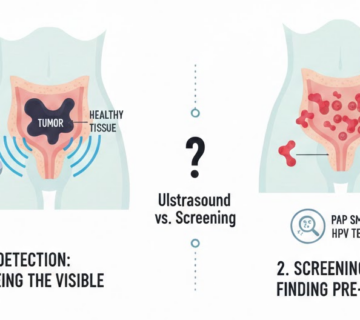The journey of pregnancy is filled with anticipation, wonder, and often, a few questions. Among the earliest and most exciting milestones is often the first ultrasound, a moment when many parents-to-be get their initial glimpse of their developing baby. While many are familiar with abdominal ultrasounds, you might hear your doctor mention a “transvaginal ultrasound,” especially in the early weeks.
So, what exactly is a transvaginal ultrasound, and why is it sometimes the best choice for those initial check-ups?
What is a Transvaginal Ultrasound?
A transvaginal ultrasound (TVUS), also known as an endovaginal ultrasound, is a type of pelvic ultrasound used to examine the female reproductive organs, including the uterus, ovaries, and fallopian tubes. Unlike a standard abdominal ultrasound where the transducer (a small, hand-held device) is moved across your belly, for a TVUS, a slimmer, specially designed transducer is gently inserted into the vagina.
This method allows the ultrasound waves to get much closer to the pelvic organs, providing clearer and more detailed images, particularly during the very early stages of pregnancy.
Why is a Transvaginal Ultrasound Performed in Early Pregnancy?
While the thought of it might seem a bit daunting, the transvaginal ultrasound is an incredibly valuable and common tool for several important reasons in the first trimester:
- Confirming Pregnancy and Location: One of the most critical uses is to confirm the presence of a pregnancy and ensure it is developing within the uterus. This helps to rule out an ectopic pregnancy, a serious condition where the embryo implants outside the uterus.
- Detecting a Fetal Heartbeat: As early as 5.5 to 6 weeks gestational age, a transvaginal ultrasound can often detect the first flicker of a fetal heartbeat, a moment of profound reassurance for many parents.
- Determining Gestational Age and Due Date: By accurately measuring the embryo or fetal pole (the earliest visible sign of an embryo), we are able to determine your baby’s gestational age and provide a more accurate estimated due date.
- Checking for Multiple Pregnancies: If you’re carrying twins, triplets, or more, a transvaginal ultrasound can identify them early on.
- Assessing the Uterus and Ovaries: The transvaginal ultrasound scan allows us to examine the health of your uterus, cervix, and ovaries, looking for any fibroids, cysts, or other conditions that might need monitoring during pregnancy.
- Investigating Symptoms: If you’re experiencing early pregnancy symptoms like bleeding or pelvic pain, a transvaginal ultrasound can help determine the cause.
Is It Painful? Is It Safe?
These are very common and valid questions!
- Is it painful? Most women report that a transvaginal ultrasound is not painful, though you might feel some pressure or mild discomfort as the transducer is gently positioned. It’s often compared to the feeling of a Pap smear. The technician will use a sterile, lubricated cover on the transducer to ensure comfort.
- Is it safe? Absolutely. Transvaginal ultrasounds are considered very safe for both the mother and the developing baby. They use high-frequency sound waves, not radiation, to create images. There is no evidence that ultrasounds, when performed appropriately by trained professionals, cause any harm during pregnancy.
What to Expect During the Procedure
The process is usually quick and straightforward:
- First, you will empty your bladder.
- You will lie on an exam table.
- The sonographer gently inserts the transducer.
- They will move it for different views.
- You can see the images on a monitor.
- The scan takes 15 to 30 minutes.
Your First Glimpse and Beyond
For many, seeing that tiny sac, a developing embryo, or even a flickering heartbeat for the very first time on the ultrasound screen is an incredibly emotional and unforgettable experience. The transvaginal ultrasound provides crucial early information that helps your healthcare team ensure a healthy start to your pregnancy.
Feel free to contact us for your next appointment!
Feel free to contact us for your next appointment and visit our Facebook and Linkedin pages to stay up to date.



No comment